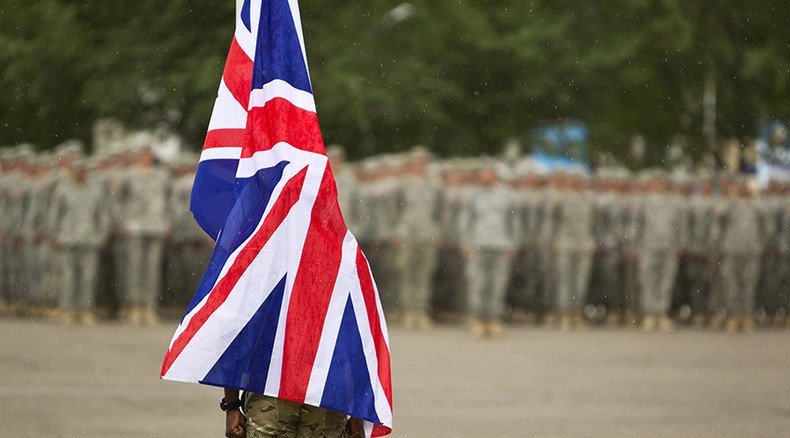Russia to top UK govt’s new security threat list – media

Russia will be named as a top-tier potential threat when Prime Minister David Cameron announces the UK’s new National Security Strategy later in November, according to British media.
Terrorism, radicalization by Islamic State and other extremist groups, instability caused by mass migration, and global health threats like Ebola also made it onto the list.
The new roster of potential threats was put together by the British government after a major security review that the UK performs every five years. It is expected to become a key part of the UK’s next National Security Strategy, which Cameron is scheduled to announce on November 23, according to The Sunday Times.
“The last five years have seen a range of international developments, ranging from the growth of radicalization and fundamentalism to growing concerns around our energy supply, and rising aggression from Russia,” the strategy, put together earlier in the year, said.
Russia & China are ‘challenging the world order’ – Carter
https://t.co/w1Ci4pKAKgpic.twitter.com/atvueQPs9C
— RT (@RT_com) November 8, 2015Russia made it to the top spot due to the Ukrainian crisis, with uncertainty over the crash of a Russian A321 jet in Egypt’s Sinai Peninsula now adding to British concerns, according to The Daily Mail.
Russian airstrikes against terror targets in Syria, renewed flights by strategic bombers, and submarine activity in the north Atlantic have also alarmed the UK leadership.
“Russia’s actions in Ukraine have introduced question marks over the role and future of NATO operations in neighboring countries and re-awakened the threat posed by Russia to states in Eastern Europe and the Baltic, some of which are NATO and/or EU member states,” the National Security Strategy says.
“Russia’s increasing isolation in international politics (for example, the G8 met last year as the G7, excluding President Putin from the table), increased military spending and apparent willingness to display force in the face of universal condemnation suggest the next five years could well see an escalation of the Russian threat to the security of Western Europe,” the document reads.
READ MORE: Snowden condemns Britain’s new surveillance bill
The West continues to accuse Russia of supporting eastern Ukrainian rebels with weaponry and even man power in their conflict with the Kiev authorities, which is yet to be fully resolved.
However, these accusations by the US, UK, and their allies have never been backed by any verifiable proof, while Moscow has repeatedly denied its involvement.
In the previous security strategy, released back in 2010, Russia wasn’t even mentioned as a threat.
Another nation that has unnerved UK authorities is China, which they say is responsible for “authoritarianism and persistent human rights abuses.”
“Other shifts we have seen include escalating tensions in the South China Sea and a closer relationship between Russia and China as the former tries to off-set the EU’s sanctions by developing markets to its east,” the strategy stated.
READ MORE:'London refuses to share ISIS target information with Moscow' – Russia’s envoy to UK
International terrorism continues to be a source of danger for Britain, with the emergence of Islamic State (IS, formerly ISIS/ISIL) adding to the earlier threat posed by Al-Qaeda.
“The interactions between the two organizations, and their encouragement of others to follow in their paths, have renewed and deepened the challenge across the Middle East and Africa,” the document said.
The strategy also labeled as “severe” the threat of terrorism resulting from radicalization and religious intolerance in the UK.
“Religious fundamentalism and intolerance across religions seems to have risen globally. In particular Islamic separatists and fundamentalists are now seen a serious threat in destabilized parts of the world,” it said.
Last on the list of threats are the potentially devastating impact of a global health epidemic such as the West African Ebola virus, as well as more traditional concerns, including terrorism in Northern Ireland, organized crime, and cyber-attacks.












